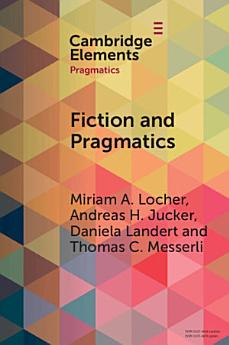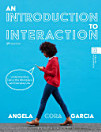Fiction and Pragmatics
มี.ค. 2023 · Cambridge University Press
eBook
151
หน้า
reportคะแนนและรีวิวไม่ได้รับการตรวจสอบยืนยัน ดูข้อมูลเพิ่มเติม
เกี่ยวกับ eBook เล่มนี้
This Element outlines current issues in the study of the pragmatics of fiction. It starts from the premise that fictional texts are complex and multi-layered communicative acts which deserve attention in pragmatic research in their own right, and it highlights the need to understand them as cultural artefacts rich in possibilities to explore pragmatic effects and pragmatic theorising. The issues covered are (1) the participation structure of fictional texts, (2) the performance aspect of fictional texts, (3) the interaction between readers and viewers and the fictional texts, as well as (4) the pragmatic effects of drawing on indexical linguistic features for evoking ideologies in characterisation. This title is also available as Open Access on Cambridge Core.
ให้คะแนน eBook นี้
แสดงความเห็นของคุณให้เรารับรู้
ข้อมูลในการอ่าน
สมาร์ทโฟนและแท็บเล็ต
ติดตั้งแอป Google Play Books สำหรับ Android และ iPad/iPhone แอปจะซิงค์โดยอัตโนมัติกับบัญชีของคุณ และช่วยให้คุณอ่านแบบออนไลน์หรือออฟไลน์ได้ทุกที่
แล็ปท็อปและคอมพิวเตอร์
คุณฟังหนังสือเสียงที่ซื้อจาก Google Play โดยใช้เว็บเบราว์เซอร์ในคอมพิวเตอร์ได้
eReader และอุปกรณ์อื่นๆ
หากต้องการอ่านบนอุปกรณ์ e-ink เช่น Kobo eReader คุณจะต้องดาวน์โหลดและโอนไฟล์ไปยังอุปกรณ์ของคุณ โปรดทำตามวิธีการอย่างละเอียดในศูนย์ช่วยเหลือเพื่อโอนไฟล์ไปยัง eReader ที่รองรับ






